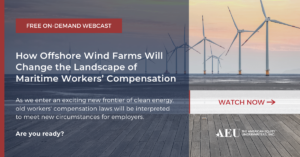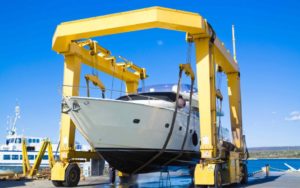


Chris Richmond
By Chris Richmond
Originally Submitted to WorkBoat Magazine
Shipyards and marine related business are comprised of a wide variety of jobs and with this variety comes different types of injury coverage for the people who work there. Just because you believe your employees are properly covered does not mean they are. Take a moment to review these three areas of injury coverage.
Jones Act
Officially called “The Merchant Marine Act of 1920,” this covers employees who are considered crew members on your vessels. Seamen employed on vessels traveling from U.S. port to U.S. port are entitled to coverage under the Jones Act, with the coverage provided under a vessel’s Protection and Indemnity policy. Crew are covered for injury and illness while ‘in service to the ship’ through the Maintenance and Cure portion of the coverage. Crew are also entitled to sue the ship or ship owner for unseaworthy or negligent conditions which they believe caused their injury. To be considered a crew member, the employee must spend roughly a third of their time at work in service to the ship.
USL&H
Employees who are working around docks, wharves or servicing a vessel will fall under the U.S. Longshore and Harbor Workers Act. These are your stevedores, repair crew, crane operators or similar employee who service, load or go on and off vessels but are not considered crew members. The two determining factors for USL&H are Situs and Status, both of which need to be met in order to be eligible for this coverage. To meet the Situs test, an injury must have occurred while working on or near navigable waters. The Status test is met by the work being done. Exclusions include office workers, aquaculture and boat builders who build recreational vessels less than 65 feet in length. Even if you have a boat yard where you feel you would never have a USL&H risk, it is very inexpensive to have this added to your state workers compensation policy on an ‘if any’ basis. This way you have at least some defense covered should a USL&H claim be filed against you.
State workers compensation
Your office staff and other employees are covered under your state workers compensation act. Keep in mind that if you have employees who work in other states besides the one where your business is located then you need to list these as well. State workers compensation acts are no-fault laws which means they cover a claim as long as the employee’s accident happened within the scope of their employment.
This is a very quick explanation of a very important insurance coverage. Take the time to review your operation and exposure with your agent to help you get the coverage you need.




